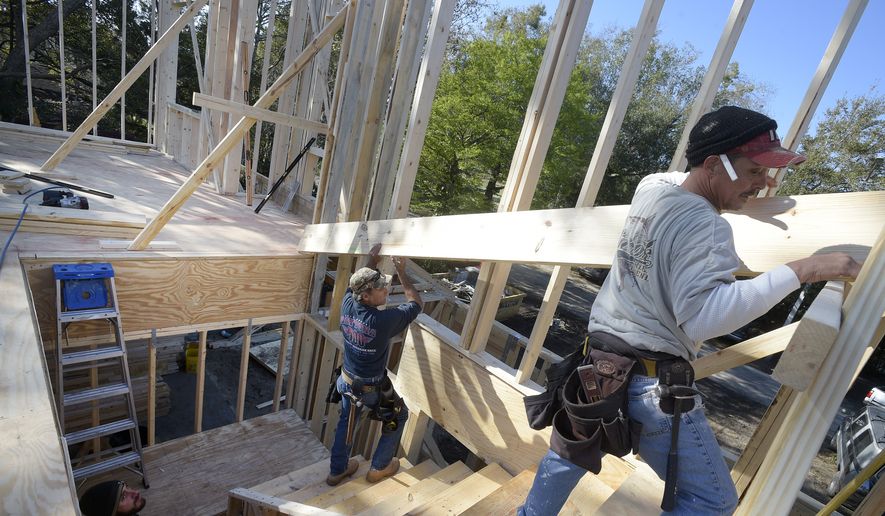Good news on the labor front may mean quicker action on the monetary front, as investors are betting the falling unemployment rate in February announced Friday could mean rising interest rates from the Federal Reserve by early summer.
The U.S. jobs machine showed no signs of the winter blues as employers added 295,000 jobs in February, exceeding analyst expectations and marking the 12th straight month with gains of 200,000 or more, the Labor Department announced Friday.
The national unemployment rate fell from 5.7 percent to 5.5 percent, the lowest since mid-2008, but the report noted that much of the decline stemmed from more people leaving the labor market, either through retirement or frustration at not being able to find a job.
The major U.S. stock markets actually fell on the news, given the widespread expectation that the surging job market will accelerate the Fed’s timetable for raising interest rates to keep inflation in check, possibly as early as the central bank’s June meeting. The Dow Jones Index hit a one-month low on trader concerns of higher borrowing rates to come.
The expectation that the Fed may act to raise rates for the first time since June 2006, two years before the global financial meltdown and the onset of the Great Recession.
Intense market interest over when Fed Chair Janet Yellen and her colleagues will finally move to ease their unprecedented easy-money policies has only made the central bank’s job harder.
SEE ALSO: Obama’s recession efforts didn’t help middle class, poor — report
Even top Fed officials acknowledged that the latest jobs figures have to figure into rate calculations to come, and whether the Fed will act in June or wait until September or later to move
“June would strike me as the leading candidate for liftoff,” Jeffrey Lacker, president of the Federal Reserve Bank of Richmond and a voting member of the Federal Open Market Committee, said in an interview Friday on Sirius XM Radio. “It is clear we need higher real interest rates.”
Private analysts agree.
“The word ’patience’ will be stricken at the March [Fed interest-rate] meeting, paving the way for a hike in the interest rate in June,” said economist Sung Won Sohn of the Smith School at California State University.
Paul Dales, an economist at Capital Economics, told The Associated Press that the February jobs report “is quite a symbolic change that increases the pressure on the Fed to hike rates in June.”
February saw strong job increases in sectors across the board: Hotels and restaurants added 60,000 jobs, and retailers gained 32,000, while higher-paid services jobs such as accountants, engineers and lawyers, gained 51,000, construction 29,000 and financial services 10,000.
The 295,000 jobs — 288,000 of those in the private sector — was well above the 220,000 to 240,000 jobs that most forecasters were predicting, but analysts said there were some clouds on the horizon in the report as well.
Despite the surging jobs market, the average hourly wage rose just 3 cents to $24.78 an hour. Average hourly pay has now risen just 2 percent over the past 12 months, barely ahead of inflation. And the January jobs gain was revised downward from the preliminary estimate of 257,000 to 239,000.
The percentage of working-age Americans who either have a job or are seeking one fell 0.1 percentage point in February to 62.8 percent, near the lowest level in nearly four decades despite the hiring surge and recent strong GDP growth in the U.S. economy.
“Overall, it was a good report, but perhaps not as strong as the headlines suggest,” Jan Hatzius, chief economist at Goldman Sachs, said on CNBC.
Jason Furman, chairman of the White House Council of Economic Advisers, noted in a blog post that the 12-month streak of 200,000-plus job gains through February was the first time that has happened since 1977.
“But additional steps are needed to continue strengthening wages for the middle class,” Mr. Furman wrote.
“While it is welcome news that more Americans found work last month, middle-class families continue to be left behind by the president’s policies,” GOP House Speaker John A. Boehner said in a statement.
Despite the doubts, the U.S. economy continues for far outperform its peers in Europe and Japan. The dollar surged again on the employment number to an 11-year high.
The Dow closed Friday down 278 points, or 1.54 percent to 17,856.85, while the broader S&P 500 was off 29.87 points, or 1.42 percent, to 2071.2. The tech-heavy Nasdaq was down 55.4 points, 1.11 percent, to 4,927.44.
— This article was based in part on wire service reports.
• David R. Sands can be reached at dsands@washingtontimes.com.




Please read our comment policy before commenting.